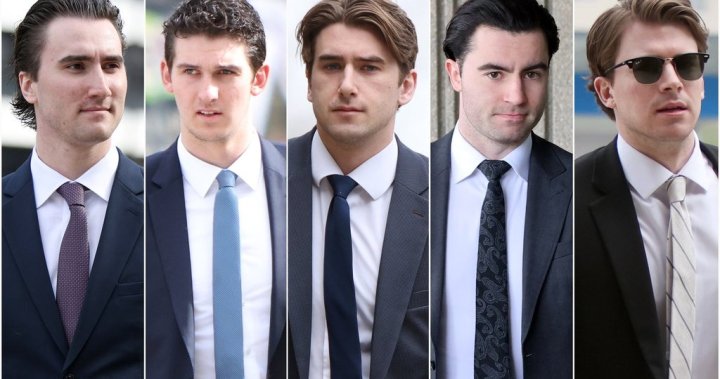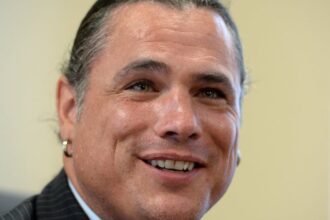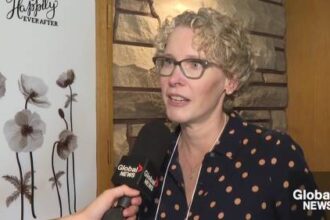The London, Ontario courtroom fell silent Tuesday as prosecutors continued their methodical questioning of the alleged victim in the high-profile sexual assault case involving five former World Junior hockey players. The woman, whose identity remains protected by a publication ban, remained composed but visibly tense during her third day of cross-examination.
“I was scared and I didn’t know what to do,” she testified, recounting details of the June 2018 incident that has sent shockwaves through Canada’s hockey establishment. The alleged assault occurred following a Hockey Canada Foundation gala in London, with the complainant stating she met one of the accused at a downtown bar before accompanying him and several teammates to a hotel room.
Defense attorneys representing former NHL players Alex Formenton, Carter Hart, Michael McLeod, Cal Foote, and Dillon Dubé have repeatedly challenged elements of the woman’s testimony, focusing on apparent inconsistencies between her police statements and court testimony. The strategy appears designed to undermine her credibility while establishing reasonable doubt.
“The timeline discrepancies are what we’re trying to understand,” said one defense lawyer during Tuesday’s proceedings, referring to differences in the woman’s recollection of the sequence of events that night.
Crown prosecutor Meredith Gardiner pushed back against these tactics, arguing that trauma victims often have fragmented memories of their experiences. “Memory doesn’t operate like a video recording,” Gardiner reminded the jury. “Especially in traumatic situations.”
The case has sparked intense national debate about hockey culture, consent, and accountability. Hockey Canada faced significant public criticism for its handling of the initial allegations, eventually leading to leadership changes within the organization and revised policies regarding player conduct and sexual assault awareness training.
Court documents reveal that police investigations initially closed in 2019 without charges, but the case was reopened in 2022 following media reports and public pressure. All five defendants have pleaded not guilty to charges of sexual assault, with McLeod facing an additional charge of being a party to the offense.
Legal experts observing the trial note its significance extends beyond the courtroom. “This case represents a pivotal moment for both professional sports and our justice system’s handling of sexual assault allegations,” said Miranda Thompson, a Toronto-based criminal lawyer not associated with the proceedings. “The scrutiny is unprecedented.”
Outside the courthouse, demonstrators gathered with signs supporting sexual assault survivors, while others expressed concerns about presumption of innocence. The polarized reactions highlight the complex social dynamics surrounding high-profile sexual assault cases, particularly those involving celebrated athletes.
The trial is expected to continue for several weeks, with defense cross-examination likely lasting through the remainder of this week. Justice Lynda Templeton has repeatedly reminded jurors to focus solely on evidence presented in court rather than media coverage or public opinion.
As this landmark case unfolds, Canadians are left to consider: how will our society reconcile the need to protect sexual assault complainants while ensuring fair trials for the accused, especially when the spotlight of fame intensifies public judgment?

























